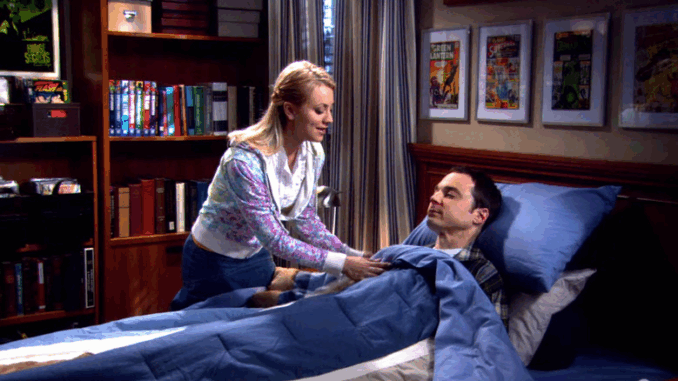
A Simple Song That Spoke Volumes
Of all the quirks that make Dr. Sheldon Cooper such an iconic character, few are as quietly powerful as his unwavering affection for one simple lullaby: “Soft Kitty.” On the surface, it’s a children’s song—cute, repetitive, and innocent. But as the show unfolds over its twelve seasons, “Soft Kitty” evolves into something much more: a symbol of comfort, vulnerability, and the unexpected heart of The Big Bang Theory.
What Is “Soft Kitty,” and Why Does It Matter?
First introduced in Season 1, Episode 11 (“The Pancake Batter Anomaly”), “Soft Kitty” is the lullaby Sheldon demands to be sung when he’s sick—a ritual established by his mother during childhood. The lyrics are simple:
“Soft kitty, warm kitty, little ball of fur.
Happy kitty, sleepy kitty, purr, purr, purr.”
To the casual viewer, it might seem like just another one of Sheldon’s oddities. But every time the song appears, it’s tied to a moment when Sheldon feels emotionally or physically fragile. In a world where he’s obsessed with logic, structure, and control, “Soft Kitty” is the rare space where he lets go.
A Peek Behind the Genius: Sheldon’s Emotional Layers
Sheldon Cooper is brilliant, arrogant, and socially unaware—traits that often make him frustrating to those around him. But “Soft Kitty” cracks open the emotional shell of this complex man. Each time he requests the lullaby, he’s reaching out for the kind of emotional care he rarely admits to needing.
The most poignant example appears in Season 2, Episode 15 (“The Maternal Capacitance”), where Sheldon asks Penny to sing it after a visit from his emotionally distant mother figure, Dr. Beverly Hofstadter. It’s not physical illness that drives him this time—it’s emotional discomfort. That shift in context shows how much the song means beyond the surface.
Penny: The Unexpected Caregiver
The recurring image of Penny singing “Soft Kitty” to Sheldon became a beloved motif throughout the series. Though their relationship is often full of eye-rolls and sarcasm, the lullaby scenes offer brief, sincere moments of connection between the two. Penny becomes the unlikely caregiver—a stand-in for emotional support in a way no equation or roommate agreement ever could be.
These moments don’t just humanize Sheldon. They deepen Penny’s role, too. Beneath her street smarts and sometimes clueless exterior, she displays a compassion that transcends intellect. Through “Soft Kitty,” she gives Sheldon something no one else can: comfort without judgment.
The Cultural Impact: Why Fans Still Sing It
“Soft Kitty” quickly became a fan-favorite. The lyrics were printed on mugs, T-shirts, and posters. Fans at conventions would sing it together. The simplicity of the song gave it power. It was The Big Bang Theory’s emotional shorthand—a phrase that carried twelve seasons of memories and meaning.
In 2015, the lullaby even sparked a legal dispute, as a family claimed the show used lyrics written by their mother. While the lawsuit didn’t gain much traction, it proved the song’s cultural reach. Soft Kitty wasn’t just a moment on TV anymore—it was a symbol that resonated with millions.
A Deeper Look: Autism Spectrum and Emotional Regulation
While never explicitly diagnosed, many fans and scholars have interpreted Sheldon’s character as being on the autism spectrum. From that perspective, the significance of “Soft Kitty” becomes even clearer. The routine of hearing the lullaby, the comfort it brings, and the rigidity with which he insists it be sung “correctly” all align with how some individuals on the spectrum seek predictability and soothing sensory input during distress.
“Soft Kitty,” then, isn’t just sentimental—it’s functional. It’s a grounding ritual for Sheldon in a world that often overwhelms him.
The Final Echo: A Song That Says Goodbye
One of the most touching callbacks to “Soft Kitty” comes in later seasons, especially as Sheldon matures emotionally. By Season 12, Sheldon no longer needs the song quite as often—but when it reappears, it does so with more emotional weight than ever before.
The lullaby that once made us laugh eventually made us cry.
Conclusion: A Melody of Meaning in a World of Equations
In a sitcom celebrated for its wit, science jokes, and pop culture references, it’s ironic that the show’s most lasting emotional legacy might be a lullaby about a kitten.
“Soft Kitty” reminded us that even the most rigid minds need warmth. That genius and vulnerability can coexist. And that, sometimes, the simplest comforts are the most profound.
In the heart of The Big Bang Theory, buried beneath physics lectures and comic book debates, lies a little song about a sleepy cat. And through it, we saw the soul of Sheldon Cooper—and maybe, just maybe, a little of our own.